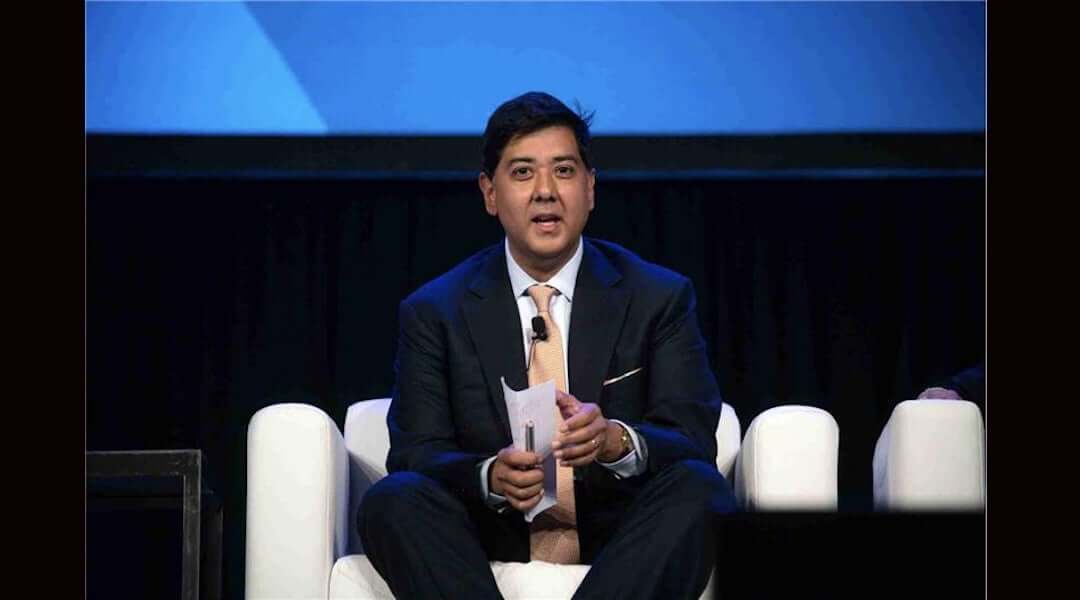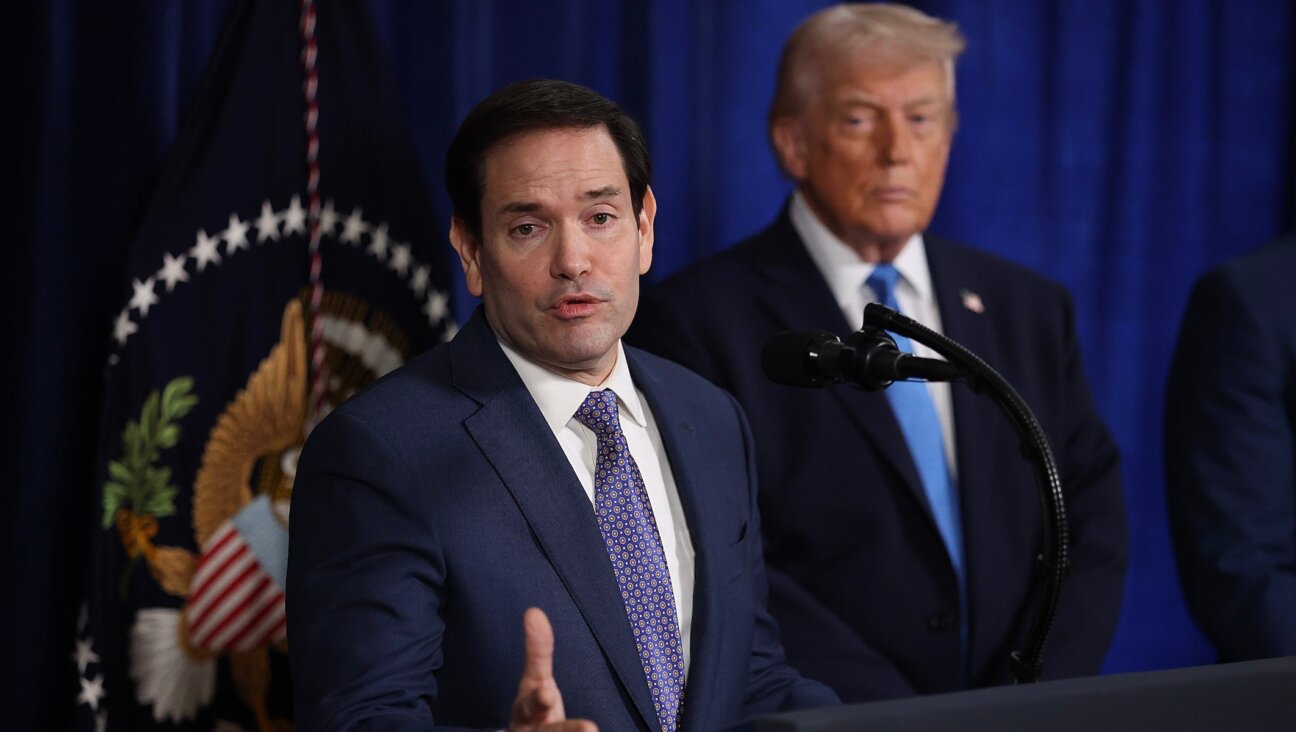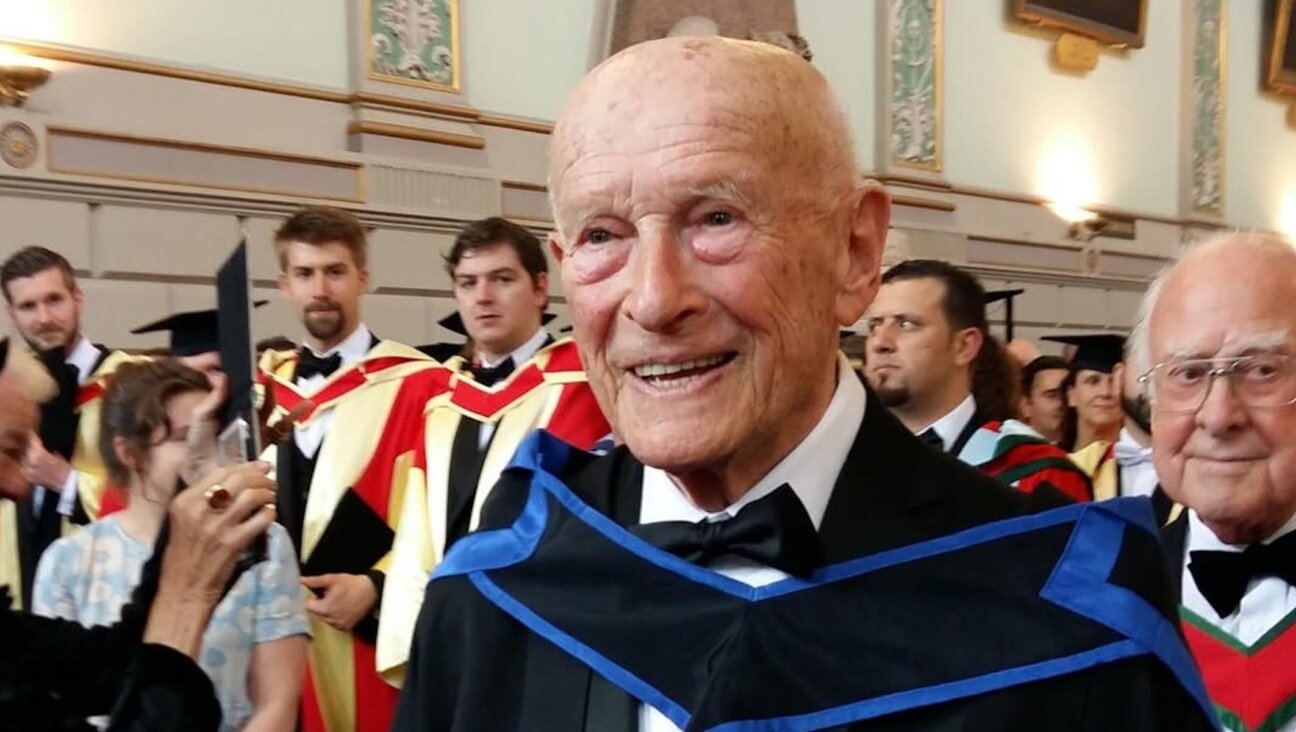How Payments To Terrorists Became An Issue At The Trump-Abbas Meeting

Donald Trump and Mahmoud Abbas at the White House, May 3, 2017 Image by Getty Images
Persistent advocacy by right-of-center pro-Israel groups succeeded in impacting the agenda of President Trump’s meeting with Palestinian leader Mahmoud Abbas on Wednesday.
At issue was the Palestinian Authority’s policy of providing funds to families of terrorists killed by Israeli forces and prisoners jailed in Israel on terrorism charges. The Israeli government has highlighted this issue in recent months, and a bill in Congress supported by some Republicans seeks to cut all U.S. aid to the Palestinian Authority until it stops the practice of providing such stipends.
“The president raised concerns about the payments to Palestinian prisoners in Israeli jails who have committed acts of terror and to their families and emphasized the need to resolve this issue,” White House press secretary Sean Spicer said after the two leaders met.
In his public remarks before the meeting, President Trump did not go into the specifics of the prisoner payment issue, but urged Abbas to root out incitement to terror. “There cannot be lasting peace unless the Palestinian leaders speak in a unified voice against incitement to violate — and violence and hate,” Trump said. “There’s such hatred. But hopefully there won’t be such hatred for very long.”
While there is a broad consensus between Israeli government figures, American lawmakers and pro-Israel groups that providing material assistance to families of terrorists encourages more terrorism, the administration has been reluctant to support zeroing out aid to the Palestinians for fear that it would lead to the collapse of the Palestinian Authority, causing the more-moderate Fatah party to losing control over the West Bank to the terror group Hamas.
Republican lawmakers have pushed back against this notion, claiming that as long as the practice of supporting prisoners’ families remains in place, U.S. aid to the Palestinian Authority can be seen as American taxpayer dollars going directly to fund terrorists. The Taylor Force Act, named after a U.S. citizen murdered by a Palestinian terrorist in Jaffa, won the support of Republicans and the active backing of pro-Israel evangelicals, who have spearheaded the drive to pass the bill. It is also supported by several other hawkish advocacy group. AIPAC, the main pro-Israel lobby, remained on the sidelines, choosing not to lobby for a move that does not enjoy bipartisan support.
But pressure has been mounting on the White House to take up the issue with Abbas and try to convince him to end the prisoner payments. Senators Marco Rubio, Lindsey Graham and Tom Cotton urged Trump in a letter they sent Tuesday to convince Abbas on the issue, stressing that some families that receive the stipends are responsible for the killing of U.S. citizens. In addition, families of terror victims sent a letter to White House chief of staff Reince Priebus asking Trump to “demand from Mr. Abbas an immediate end to of the PA’s policy of paying stipends to terrorists.”
Trump’s decision to raise the issue with Abbas, and to publicly announce that he has done so, marks a victory for Israeli Prime Minister Benjamin Netanyahu, who had made the payments a focal point of Israel’s public diplomacy efforts in recent months. But it also comes at a difficult time for Abbas, who is dealing with a hunger strike by thousands of Palestinian prisoners in Israeli jails and is expected to show support for their struggle.
Presenting Abbas with the request to end these payments, said former Middle East negotiator Dennis Ross, could give the Palestinian leader a chance to prove his seriousness to the American president. “For Abbas,” Ross said in a briefing at the Washington Institute for Near East Policy, “this will be a difficult move, given that the idea of struggle against Israel is essential to Palestinian identity. Accordingly, ending these payments would be a strong statement that Abbas is willing to take the necessary steps for compromise.”
Contact Nathan Guttman at [email protected] or on Twitter @nathanguttman
















